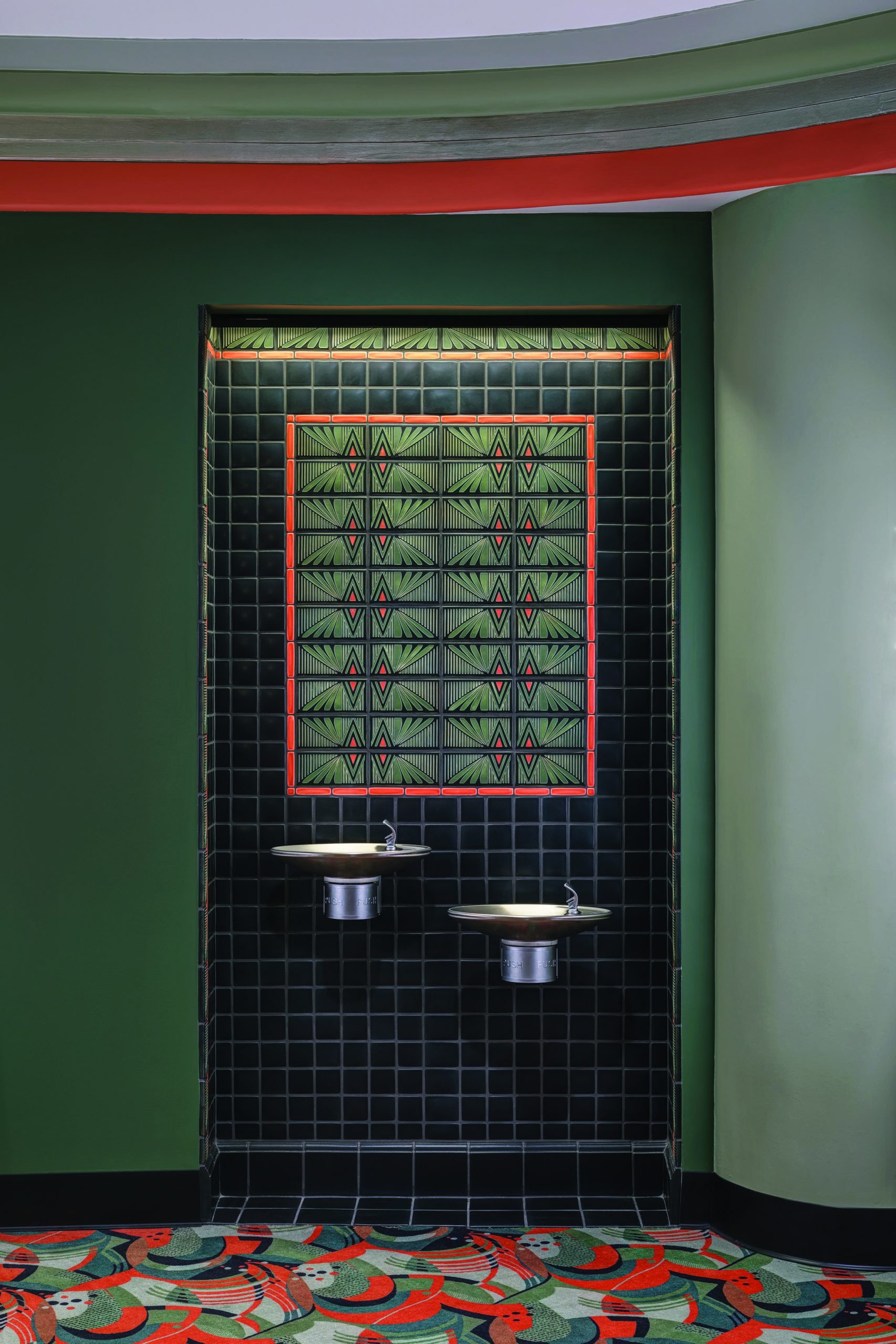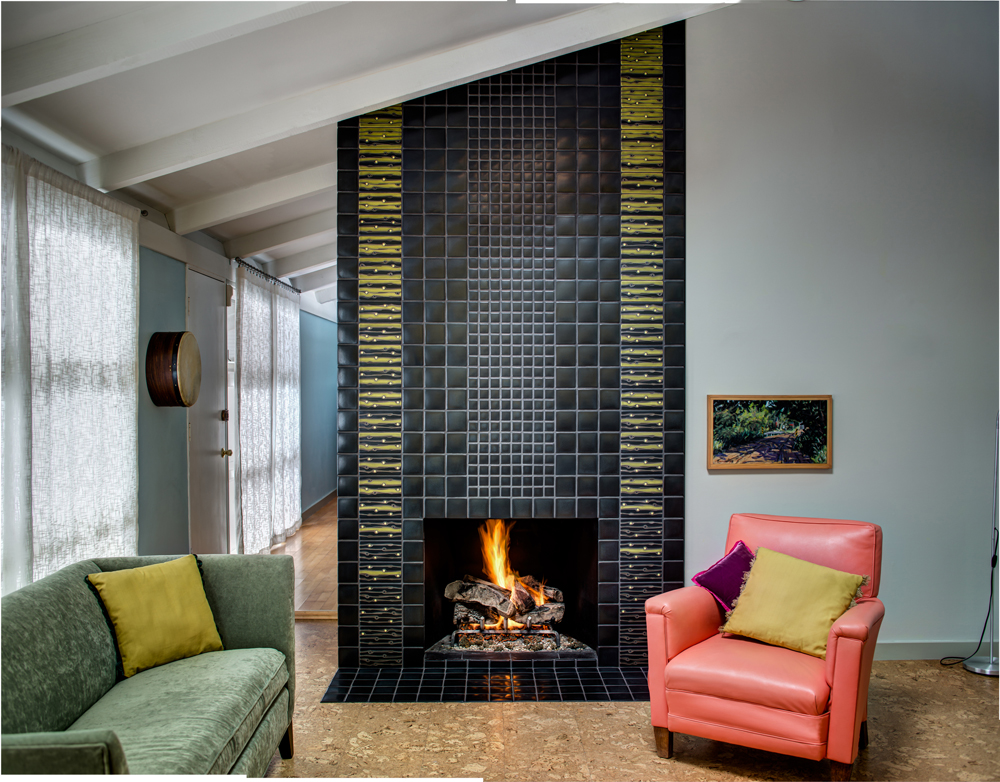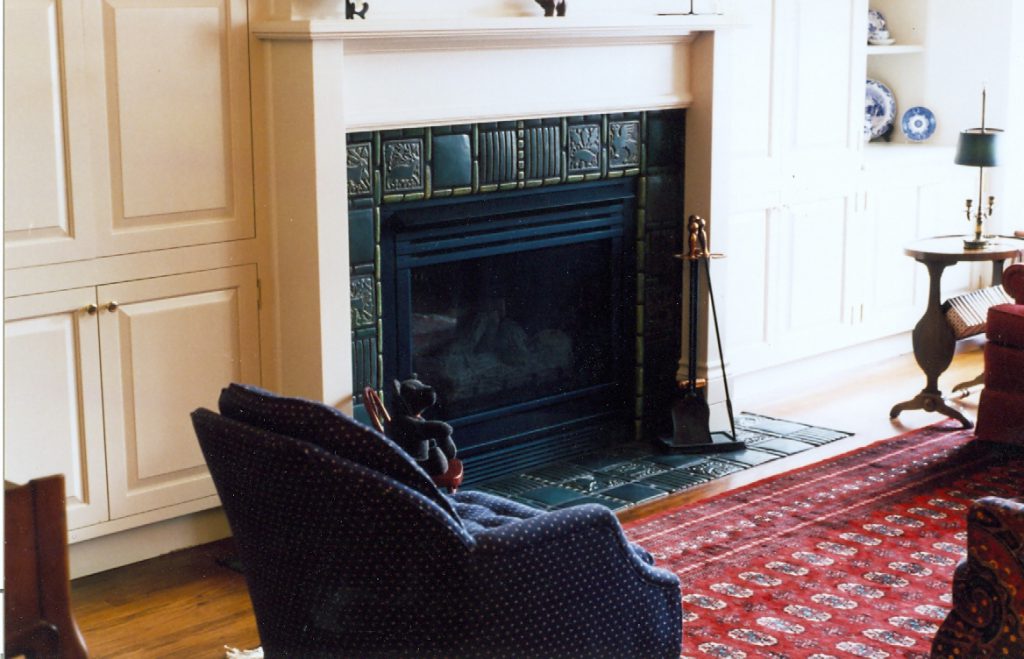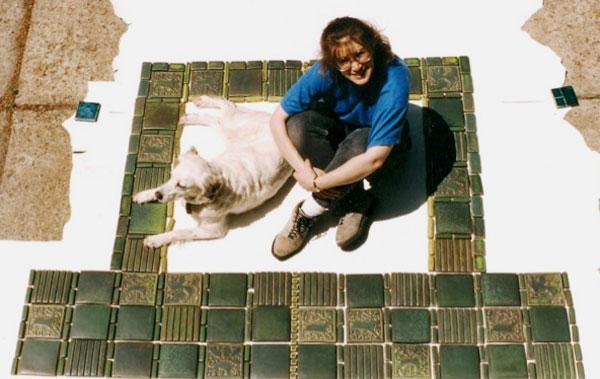Nawal Motawi, ’88, renowned for her handcrafted art tiles and functional pieces, wasn’t always a highly successful artist and entrepreneur.
Before she owned both a 12,000-square-foot facility to design and manufacture ceramic tiles as well as the clay supplier Rovin Ceramics, Motawi worked out of a small garage. Before the Frank Lloyd Wright Foundation offered her a license to reproduce his images on tiles or she sold tiles to hundreds of shops across the country, Motawi knew very little about running a business.
And before she graduated from U-M’s Stamps School of Art & Design, Motawi was an art school dropout.
Motawi first attended U-M in 1983, concentrating on painting and drawing—activities initially encouraged by her seventh-grade art teacher. But she didn’t share the aesthetic of her U-M professors, who largely embraced abstract expressionism. “I thought it was just messing around with paint,” she recalls.
She dropped out in January 1985 to attend Outward Bound. That didn’t go quite the way she’d hoped, either. After living on a traveling school bus with the Audubon Expedition Institute for a year, she found herself back at school, this time with a focus on functional art. It was less subjective. “Not what a critic says is good,” she explains, “but what people will buy in the marketplace.”
Highly motivated to become an accomplished ceramist, she attended studios before her 8 a.m. U-M classes and on Saturday nights. “I was a ball of energy. I got all fired up,” she says.
U-M sometimes felt overwhelming. The eldest of five children of an Egyptian immigrant, Motawi grew up in Fremont, Michigan, which had a population at the time of 3,000. Bursley Hall, where she lived, sometimes felt larger than her hometown.
She also found advantages to a large school. “If it didn’t work out, I could study economics and become an accountant,” she says. Her interest in economics and business would later serve her well.
After graduating from U-M, she joined the ceramics crew at Pewabic Pottery in Detroit. But after four years there—knowing she would never be tapped to design tiles—she took a job at the College for Creative Studies in Detroit, where she could make tiles the way she wanted. Soon, it was time to go out on her own and return to Ann Arbor.
In 1992, her parents invested in a cobblestone house with a two-car garage that became her studio for The Tileworks, the company she founded. She began selling singular tiles at the Ann Arbor Farmers Market until 1993, when someone commissioned her to tile a fireplace. She and an assistant designed and made the tiles by hand. Today, she has high-tech equipment and can show potential customers a glossy book full of different styles of Motawi fireplaces. One of her ceramic fireplaces even made a cameo appearance in the movie “Analyze This.”
By 2001, The Tileworks had a stellar reputation but was still not making money. “We were artists, not efficient at all.” Knowing how little she knew, Motawi started studying up on business by reading books and attending conferences. One book, “The Toyota Way”—by Jeffrey Liker, an industrial and operations engineering professor at U-M—particularly interested Motawi.
One of Liker’s doctoral students was writing a dissertation about applying Toyota’s principles to other kinds of businesses. A car company has low variability and high volume. The Tileworks had high variability and low volume. Would the principles transfer? Would Motawi become a test case? She applied his ideas and turned things around.
Those who visit or live in Ann Arbor can now enjoy Motawi installations all over campus, including Angell Hall, the Law School, and the newly renovated Michigan Union. Her tiles are also in the State Theatre.
Creating the perfect distinctive tile or installation is what she relishes most, professionally. “What makes me happiest,” she says, “is when we are given free rein to design every detail.”
Davi Napoleon, ’66, MA’68, is a theater historian and freelance writer











